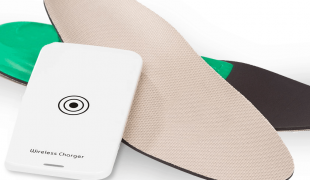- 4869
- 333
- 14
- 12
- 0
- Help Ukraine
About the solution
Zach Gordon, a nurse from Berrien Springs, has developed a device for his Alzheimer's and Dementia patients. Memesto is a small portable object that reproduces music that is somehow important in the patient's life, prior to the notorious advance of the disease.
In an attempt to also help recognize family and friends, Memesto is also programmed to play small personalized messages between songs.
After being tested in several homes, this device proved to be extremely effective in calming patients, reducing their anxiety and, consequently, the amount of medication they took regularly.
Gordon is currently a co-founder of Edgewater Safety Systems and Edgewater Development, a local company, will mass-produce “Memesto” prototypes to bring to market.
Adapted from:
https://edgewaterautomation.com/memesto-becomes-reality/
https://www.abc57.com/news/michiana-nurse-launching-product-to-help-alzh...
https://allseasons.org.uk/5-innovative-inventions-to-help-those-with-alz...
This solution shall not include mention to the use of drugs, chemicals or biologicals (including food); invasive devices; offensive, commercial or inherently dangerous content. This solution was not medically validated. Proceed with caution! If you have any doubts, please consult with a health professional.
DISCLAIMER: This story was written by someone who is not the author of the solution, therefore please be advised that, although it was written with the utmost respect for the innovation and the innovator, there can be some incorrect statements. If you find any errors please contact the patient Innovation team via info@patient-innovation.com
-
-
444
-
2
-
9831

SmartSole GPS - Tracker for people with Alzheimer's, dementia and autism
COMMUNICATION: Communicating, whether by speaking, listening, or other means
WALKING: Walking
CAREGIVING
Alzheimer's Disease
Dementia (Alcoholic Dementia, Vascular Dementia)
Body-Worn solutions (Clothing, accessories, shoes, sensors...)
Difficulty coordinating movements
Loss of balance
Social withdrawal or isolation
Cognitive impairment
Memory loss
Irritability or anger outbursts
Confusion
Restlessness or feeling slowed down
Anxiety
Panic attacks
Difficulty controlling impulses
Mood swings
Feelings of guilt or worthlessness
Suicidal thoughts or behaviors
Hallucinations (perceiving things that aren't there)
Dizziness or lightheadedness
Fatigue
Restoring mobility
Promoting self-management
Building Supportive Community Relationships
Promoting inclusivity and social integration
Improving Speech and Communication
Preventing (Vaccination, Protection, Falls, Research/Mapping)
Raise awareness
Caregiving Support
Child and Adolescent Psychiatry
General and Family Medicine
Internal Medicine
Medical Genetics
Neurology
Pediatrics
Psychiatry
United States
-
-
-
378
-
0
-
4588

Collaborator Pierluigi Mantovani creates Evolution Devices - solutions that aim to transform Multiple Sclerosis Management
CAREGIVING
BODY BALANCE: Maintaining body balance
STANDING UP: Standing up from a seated position
WALKING: Walking
Multiple Sclerosis
Assistive Daily Life Device (to help ADL)
Walking Aid (wheelchair/walker/crutches)
App (Including when connected with wearable)
AI algorithm
Body-Worn solutions (Clothing, accessories, shoes, sensors...)
Restoring mobility
Regaining sensory function
Managing pain
Promoting self-management
Preserving Organ Function
Managing Neurological Disorders
Maintaining Balance and Mobility
To improve Treatment/Therapy
Preventing (Vaccination, Protection, Falls, Research/Mapping)
Raise awareness
Caregiving Support
General and Family Medicine
Internal Medicine
Medical Genetics
Neurology
Physical Medicine and Rehabilitation
United States
-
-
-
640
-
0
-
10188

Multiple sclerosis patient develops map to help people with disabilities
CAREGIVING
MOVING IN A WHEELCHAIR: Moving using a wheelchair.
WALKING WITH A WALKING AID: Walking with a walking aid
WALKING: Walking
Multiple Sclerosis
Website
App (Including when connected with wearable)
Restoring mobility
Enhancing health literacy
Promoting self-management
Rehabilitating After Stroke
Managing Neurological Disorders
Building Supportive Community Relationships
Promoting inclusivity and social integration
Recovering from Traumatic Injuries
Enhancing Mental Health
Raise awareness
Caregiving Support
General and Family Medicine
Internal Medicine
Neurology
Neurosurgery
Physical Medicine and Rehabilitation
United States
-
 en
en